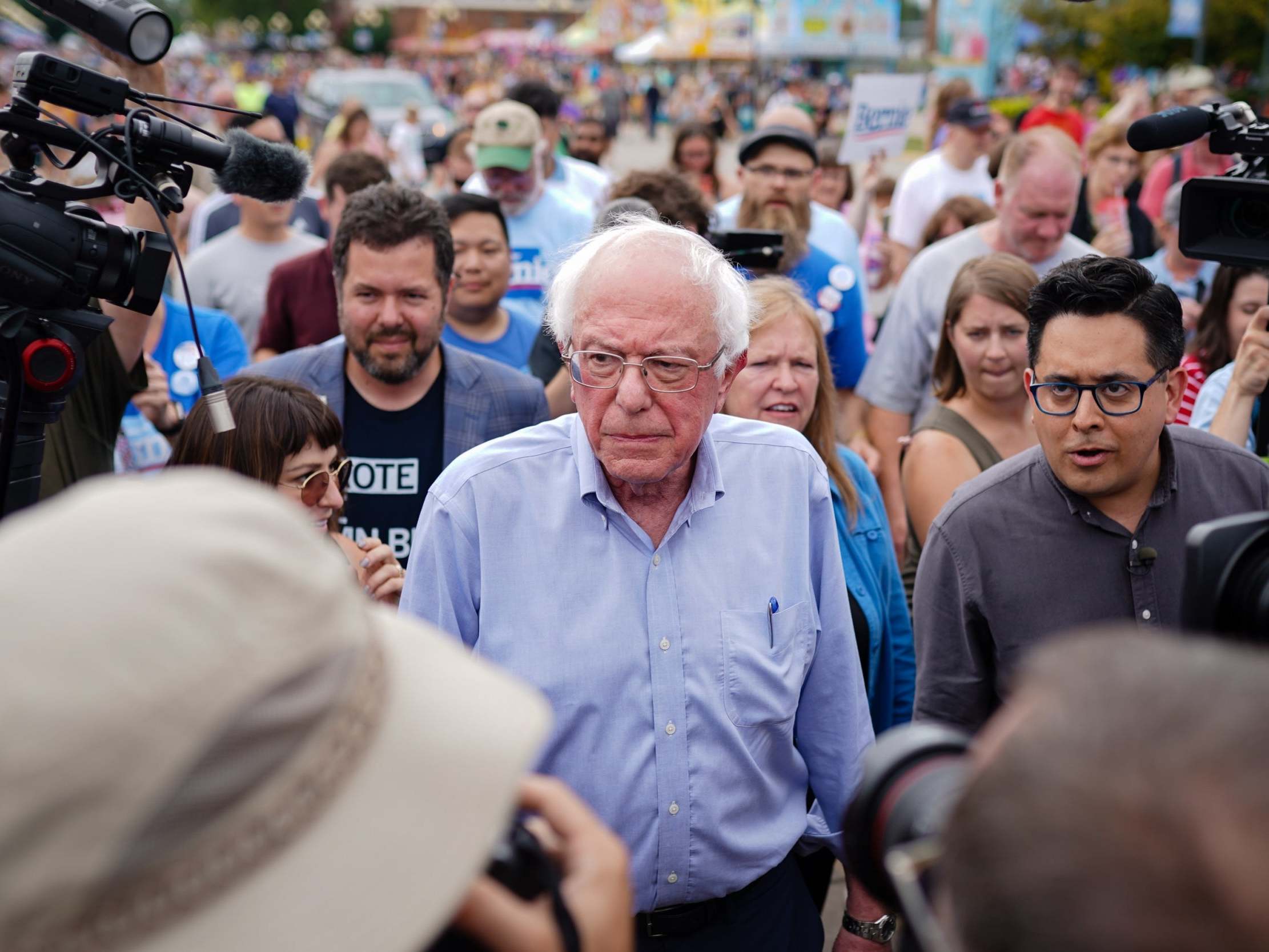The Iowa State Fair may be fun but the key for most 2020 candidates is simply avoiding a mistake
The annual event is something all candidates will look to attend – but it has a long history of political gaffes, says Chris Stevenson


The Iowa State Fair is a rite of passage for all presidential nominees – taking a tour around the site in Des Moines and indulging in the range of deep-fried snacks on offer and making sure to pose next to the 600lb butter cow.
It is one of the first occasions you know all candidates will likely turn up at some point over 11 days from 8 to 18 August (although Beto O’Rourke cancelled a trip on Thursday to stay in El Paso as the city recovers from a mass shooting). The reason? A mix of tradition and the fact that you don’t want to slight possible voters in the first state to decide their choice for nominee.
In 2020 the Iowa caucuses will take place on 3 February and with Donald Trump a lock-in for the Republican nomination, the caucuses will be particularly important for a crowded Democrat field. A first-place finish in the vote, or even a close second or third will give a candidate momentum going into the next few races. It will also mean an increase in donations and a boost in media airtime.
Since 1980, more than half of the candidates who won in Iowa went on to win their party’s nomination. So it matters.
The biggest thing for candidates at the state fair is not to make a mistake. In an era where the media cares mostly about the national picture, a solid performance in front of the voters will not gain you much traction. Getting noticed is fine, such as Donald Trump arriving in a helicopter in 2015, but do not make the wrong impression. The fact that Trump let children take rides in the helicopter created a positive impression with fair-goers when the stunt could have easily backfired.
For an example of what happens when it does go wrong, look no further than Mitt Romney. In 2007 he had received poor reviews of his visit, so in 2011 he had dressed more casually and was involved in flipping pork chops and taking a picture with a huge pig. Eventually he took his turn on the fair’s political soapbox.
A number of hecklers interrupted the Republican candidate, including one that asked for tax increases for large businesses. Cue Romney uttering the line: “Corporations are people, my friend.” Bang, all the hard work was undone. Democrats attacked him as a cold businessman, out of touch with middle America, and the narrative stuck.
There is another tale about John Kerry from 2003. A few days before the fair, he had been labelled elitist in the media for ordering a Philly cheesesteak with Swiss cheese rather than the expected Cheez Whiz (a processed cheese sauce). It is a danger that politicians may get it down their shirt, but it is supposed to represent ordinary America. Already on edge, a campaign staff member is said to have gone mad when he spotted Kerry buying a fruit smoothie with an umbrella in it. Items such as a deep-fried Oreo could be a political accident waiting to happen.
Bernie Sanders shows what happens when you get it right at the fair. In 2015 an estimated 1,000 people came to hear him speak from the soapbox, catapulting him from a longshot candidate to a rival for Clinton. Sanders very nearly beat Clinton in the caucuses six months later.
Democrat candidates lagging in the polls, like entrepreneur Andrew Yang, Ohio representative Tim Ryan and New York senator Kirsten Gillibrand have all sought to make an impression, knowing that a bit of media coverage now would be precious.
Most candidates will likely go to the fair in hope rather than expectation. Just as long as they don’t make a headline-grabbing bad impression.
Join our commenting forum
Join thought-provoking conversations, follow other Independent readers and see their replies
Comments